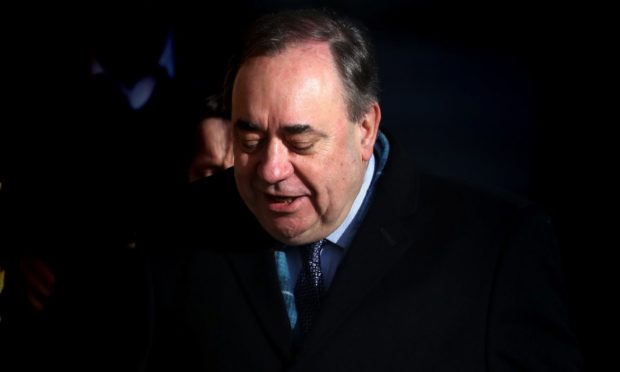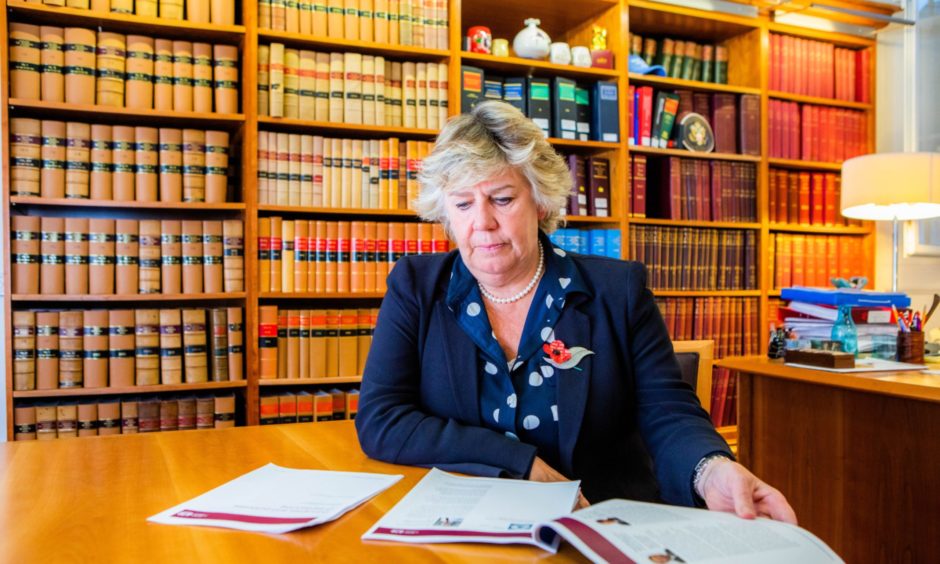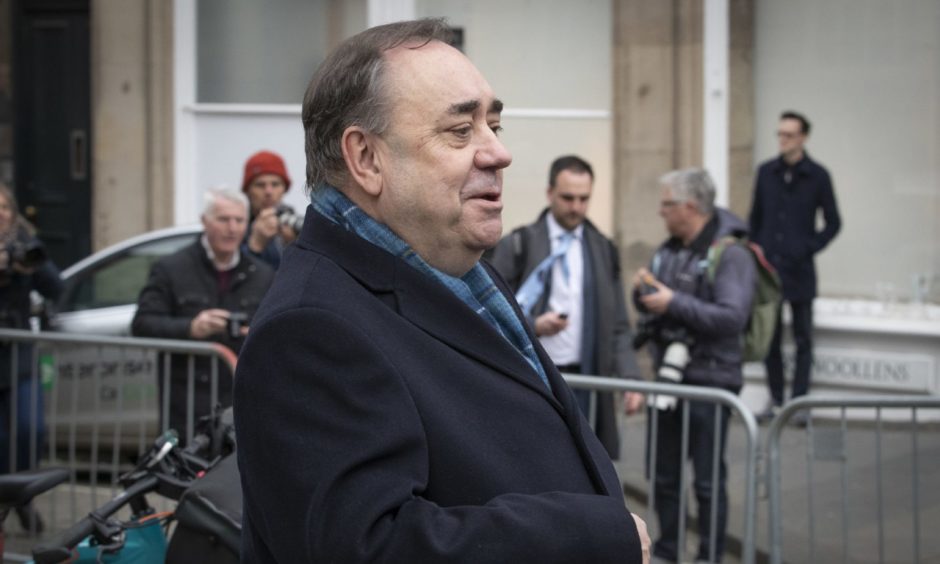MSPs will meet on Wednesday to discuss whether a legal ruling clears the way for Alex Salmond to testify before their inquiry.
The Holyrood committee leading a probe into the way the Scottish Government handled allegations against the former first minister is expected to consider whether they can publish his evidence in the wake of a court judgement.
Mr Salmond is understood to be willing to appear before the inquiry if his documents are published, but the future of the inquiry could be plunged into uncertainty if the committee again refuses.
The MSPs previously voted by five to four against releasing the details, citing legal concerns over orders to protect the anonymity of complainers.
On Tuesday a judge revealed she had amended the court order relating to the case to remove “any slight risk of misinterpretation”.
Lady Dorrian said her amendment, which was confirmed last week following a legal challenge by The Spectator magazine, aimed to “highlight the scope of the order whilst maintaining the necessary protection” for the complainers.
The High Court ruling was viewed last week as a “step forward” by Mr Salmond’s camp and some members of the Holyrood committee.
Reacting to the publication of the ruling, The Spectator said: “We welcome Lady Dorrian’s written judgment today which confirms that – as we always believed – the court had no intention of obstructing a legitimate parliamentary inquiry established to investigate government behaviour and hold it to account.
“We believe there is no reason why all key and relevant evidence should not now be published.”
The Holyrood committee was set up after Mr Salmond received a £512,000 pay-out following the Court of Session civil ruling that the Scottish Government’s handling of the complaints was “unlawful” and “tainted by apparent bias”.
Last week Lady Dorrian told a hearing at the High Court in Edinburgh that she would add “as such complainers in those proceedings” to the contempt order relating to the criminal trial.
The former first minister was cleared of 13 charges, including sexual assault, indecent assault and attempted rape, following a trial at the same court last year.
Outlining the reasons behind her decision on Tuesday, Lady Dorrian said the original prohibition in the order was designed to protect the identity of those who were complainers in the criminal proceedings, and to prevent the publication of information which might identify them as having been complainers in the case.
She believed the original wording was “clear” that it was designed to prevent publication of details which could identify them as the “persons against whom the offences alleged in the trial are said to have been committed”.
The judge said: “There should be no confusion about the matter.”
But she added: “However, I recognised that a reputable journal and responsible senior counsel have suggested otherwise, and that any slight risk of misinterpretation could readily be addressed by the addition of a few words to the order, which the Crown did not oppose.”
She said: “I considered that the addition of the words ‘as such complainers in those proceedings’ would serve to highlight the scope of the order whilst maintaining the necessary protection for complainers.
“I agreed therefore to vary the order to that extent.”
Evidence documents
The Holyrood committee was due to meet at 5pm on Wednesday.
It revealed on Tuesday evening that Deputy First Minister John Swinney had sent a letter with 51 additional evidence documents for the inquiry, although some had already been published.
In his letter, Mr Swinney said: “This completes the final submission of documents from the Scottish Government, which totals 613 documents comprising around 2,000 pages of material including that previously submitted to the committee, each of which has been manually processed and checked in line with data protection, confidentiality and legal restrictions.
“In preparing the additional documentation submitted to the committee today, the Scottish Government has reviewed its productions and the documents it “recovered” in the commission and is providing all documents relevant to the committee’s remit which have not previously been provided under previous tranches.”



